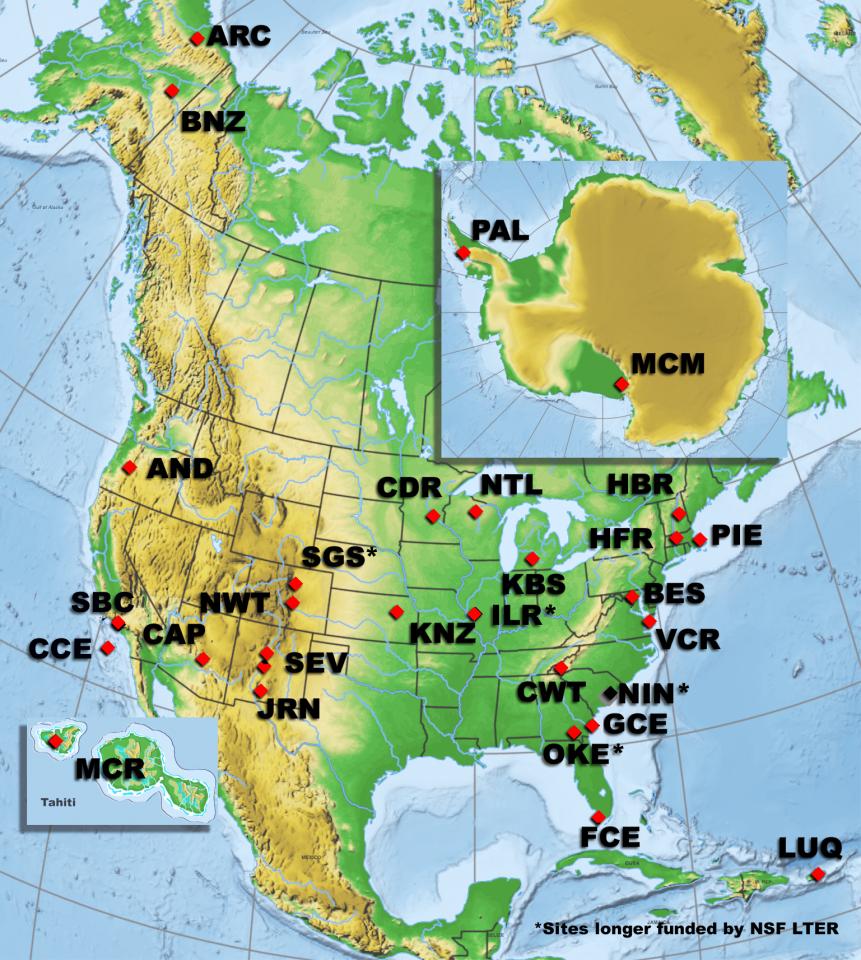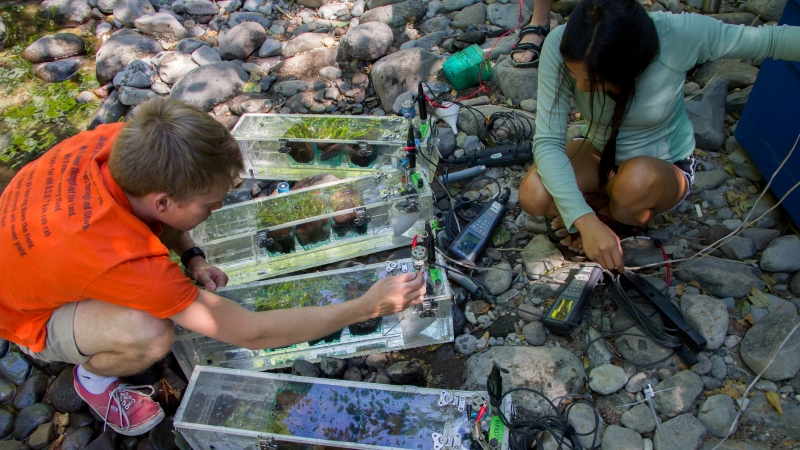Research
Long-Term Ecological Research
Ecology is the study of the relationships between living organisms and their environment, or the study of how ecosystems function. Because most ecosystem processes occur at a slow pace, ecosystems only reveal themselves though patient observation. A 500-year-old tree can fall in a moment, but it takes decades or even centuries for that fallen tree to decay. Some events can happen quickly: a flood, a fire, or a landslide. But unless you observe a place prior to a disturbance, you do not really understand the impacts of that event. In sum, because ecosystems change at varying rates and over long periods of time, short-term studies of ecosystems can give misleading results, or can simply not answer certain important questions.
Long-term ecological research is exceptionally rare. Less than two-percent of ecological studies last for more than five years; nearly all last for only two or three years. At the Andrews Forest, we have studied tree growth and death in the same stands for 50 years, we have studied fish populations in the same section of stream for 30 years, and we have measured temperatures and other weather information for 60 years. The goal of the program is continued attention and study of the ecosystem, over the long term, and to allow those long-term observations to inspire research questions.
The Long-Term Ecological Research (LTER) Program

The Andrews Forest has been a National Science Foundation (NSF) Long-Term Ecological Research (LTER) site since 1980. Research has been focused around a broad, central question: How do climate, natural disturbance, and land use as controlled by forest governance interact with biodiversity, hydrology, and carbon and nutrient dynamics? Answering a question like this requires decades of supporting measurements, experimentation, and conceptual advances, as well as integration and synthesis across disciplinary boundaries.
The Andrews Forest LTER program integrates research, outreach and education, and research-management partnerships to investigate forest and stream ecosystems in the Pacific Northwest. Climate change forecasts in the Pacific Northwest region portend drought, decreased snow packs, and increased wildfire. Observed rates of climate change in the Pacific Northwest, however, vary with season and location, posing major challenges for predicting ecosystem response. Land-use change, dictated by forest governance systems under pressure to provide timber, restore ecological processes, maintain biodiversity, and facilitate adaptation of forests to climate change, is an additional variable complicating efforts to understand ecosystem dynamics. The overall goal of the current Andrews Forest LTER grant cycle (2014-2020) is to apply our strengths in long-term research, outreach and education, and research-management partnerships to learn how forested mountain ecosystems respond to changes in climate, land-use, and their interactions. For a description of our NSF-funded LTER work, see our Long-Term Research Page.
Research Programs at the Andrews Forest
Long-term studies function as threads upon which we string the beads of a succession of ideas and shorter-term studies. In each successive decade, science questions emerge from long-term experiments and measurements as we examine them in a changing context, leading us to ask new questions, leading in turn to new science discoveries. Our research topics, each an integration of long-term and short-term approaches and questions, are described on the Andrew's Forest Research Programs page.

